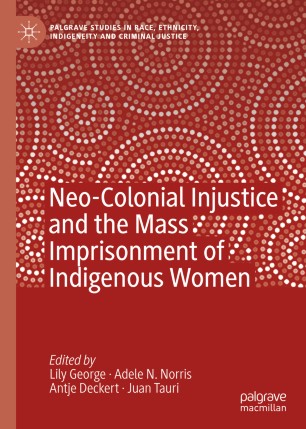

Most ebook files are in PDF format, so you can easily read them using various software such as Foxit Reader or directly on the Google Chrome browser.
Some ebook files are released by publishers in other formats such as .awz, .mobi, .epub, .fb2, etc. You may need to install specific software to read these formats on mobile/PC, such as Calibre.
Please read the tutorial at this link. https://ebooknice.com/page/post?id=faq
We offer FREE conversion to the popular formats you request; however, this may take some time. Therefore, right after payment, please email us, and we will try to provide the service as quickly as possible.
For some exceptional file formats or broken links (if any), please refrain from opening any disputes. Instead, email us first, and we will try to assist within a maximum of 6 hours.
EbookNice Team

Status:
Available4.8
7 reviewsThis book closes a gap in decolonizing intersectional and comparative research by addressing issues around the mass incarceration of Indigenous women in the US, Australia, Canada, and Aotearoa New Zealand. This edited collection seeks to add to the criminological discourse by increasing public awareness of the social problem of disproportionate incarceration rates. It illuminates how settler-colonial societies continue to deny many Indigenous peoples the life relatively free from state interference which most citizens enjoy. The authors explore how White-settler supremacy is exercised and preserved through neo-colonial institutions, policies and laws leading to failures in social and criminal justice reform and the impact of women’s incarceration on their children, partners, families, and communities. It also explores the tools of activism and resistance that Indigenous peoples use to resist neo-colonial marginalisation tactics to decolonise their lives and communities. With most contributors embedded in their indigenous communities, this collection is written from academic as well as community and experiential perspectives. It will be a comprehensive resource for academics and students of criminology, sociology, Indigenous studies, women and gender studies and related academic disciplines, as well as non-academic audiences: offering new knowledge and insider insights both nationally and internationally.